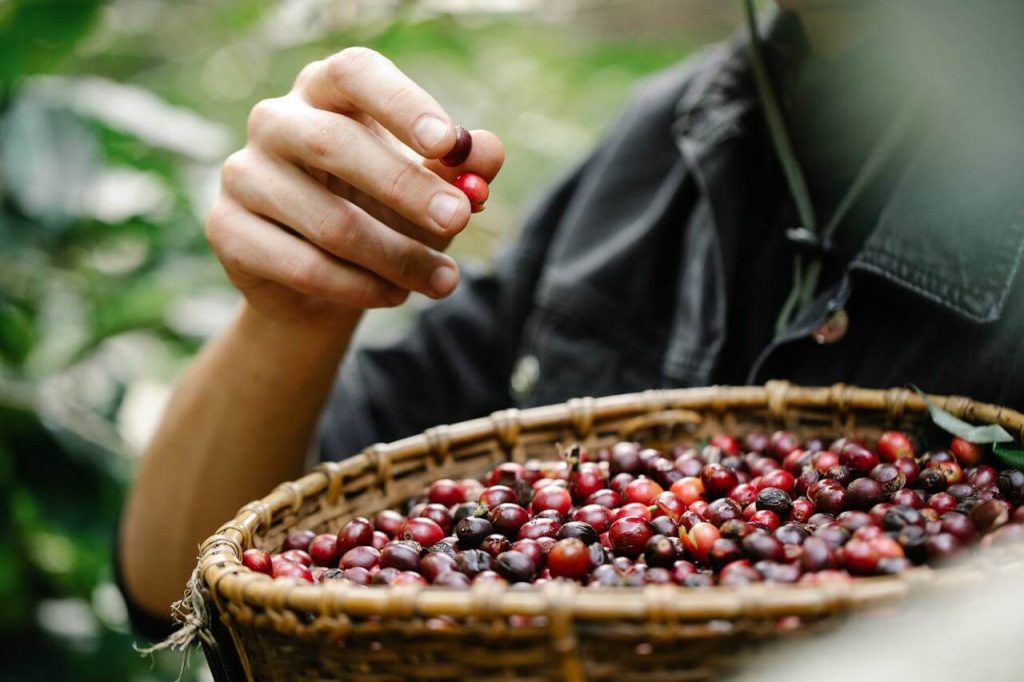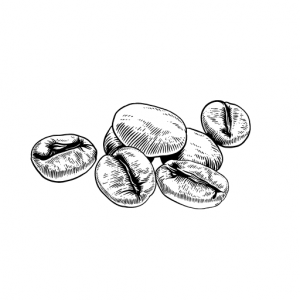For coffee connoisseurs, Arabica beans are the undisputed crown jewels. Their smooth, complex flavors, a symphony of citrus and chocolate notes, are a sensory delight unlike any other. But what if your love for coffee extended beyond the steaming cup? Imagine nurturing your own Arabica plants, witnessing their transformation from delicate seedlings to vibrant green shrubs, and finally, harvesting the precious beans that will fuel your mornings. This guide explores the captivating world of Arabica coffee, delving into the reasons why it’s both a delicious beverage and a potentially rewarding agricultural pursuit.

A Symphony of Taste: Why Arabica Coffee Reigns Supreme
Unlike its bolder cousin, Robusta, Arabica boasts a lower caffeine content (around half that of Robusta), translating to a lighter body and a smoother, less bitter flavor. This makes it a crowd-pleaser, especially for those with a lower caffeine tolerance. But the magic of Arabica goes beyond mere strength. These beans are known for their remarkable diversity in flavor profiles. Depending on the growing conditions and processing methods, a single cup of Arabica can offer hints of fruit, chocolate, nuts, or even floral notes. Every sip is an adventure for the palate, a testament to the delicate dance between nature and human expertise.
Beyond the Buzz: Potential Health Benefits of Arabica Coffee (and a Note of Caution)
For the health-conscious coffee lover, Arabica offers a potential perk. A cup of pure Arabica, unsweetened and unadulterated, boasts zero calories, making it a guilt-free indulgence. Studies have even shown promise for Arabica in managing diabetes. Extracts from these beans have been linked to decreased glucose levels in diabetic rats, and regular consumption (1-3 cups daily) might potentially reduce the risk of type-2 diabetes. However, it’s important to remember that further research is needed to confirm these findings definitively.
The Enchanting Allure of Arabica Farming: A Lucrative and Sustainable Venture
The global coffee industry is experiencing a constant buzz, fueled by the ever-growing popularity of cafes and coffee shops. Arabica, with its widespread appeal due to taste and potential health benefits, enjoys a massive market share. This translates to consistent demand for high-quality Arabica beans, making it a potentially lucrative agricultural pursuit. However, the allure of Arabica farming goes beyond profit. By incorporating sustainable practices like shade-grown coffee and organic farming, you can contribute to environmental protection and promote long-term success for your venture. Shade-grown coffee utilizes trees within plantations, providing habitat for beneficial insects and helping regulate temperature and moisture levels, thereby reducing water needs. Organic farming eliminates the use of synthetic pesticides and fertilizers, protecting the environment and promoting soil health.
Beyond the Bean: The Journey of a Coffee Enthusiast
The next time you savor a cup of Arabica coffee, take a moment to appreciate the journey those beans have taken. Imagine the cool, misty slopes high in the mountains, where these delicate plants thrive under the watchful eye of dedicated farmers. Envision the meticulous care they receive, from hand-picking ripe cherries to the precise processing methods that unlock their full flavor potential. Every cup becomes a story, a testament to the dedication and passion that goes into cultivating these exquisite beans.
A Dream Within Reach: Considerations for Aspiring Arabica Coffee Bean Farmers

While the allure of Arabica farming is undeniable, it’s important to be realistic. Before taking the plunge, consider these crucial factors:
- Climate and Care: Arabica thrives in specific conditions – cool temperatures, high altitudes (typically between 3,000 and 6,000 feet above sea level), and consistent rainfall. Researching the ideal growing conditions in your region is paramount.
- Delicate Beauty: Compared to Robusta, Arabica is more susceptible to pests and diseases. Implementing integrated pest management (IPM) strategies is essential to protect your precious crop.
- A Labor of Love: Coffee farming, from cultivation to processing, is a labor-intensive endeavor. Be prepared to invest time, effort, and potentially additional resources.
Cultivating a Sustainable Future: A Responsibility for All
Regardless of whether you’re a coffee enthusiast or a budding farmer, embracing sustainable practices is key. By supporting shade-grown and organic coffee producers, you contribute to environmental protection and the long-term health of the coffee industry. Together, we can ensure that future generations can continue to enjoy the captivating aroma and delightful taste of Arabica coffee, a beverage steeped in tradition, flavor, and the promise of a sustainable future.
While shade-grown and organic farming are excellent starting points, there are other sustainable practices to explore for ambitious Arabica farmers:
- Water Conservation: Coffee production requires significant water. Implementing drip irrigation or utilizing rainwater harvesting techniques can significantly reduce water usage.
- Fair Trade Practices: Fair Trade certification ensures that coffee farmers receive fair compensation for their crop. This not only supports their livelihoods but also encourages sustainable farming practices.
- Composting: Coffee pulp and husks can be composted and used as fertilizer, reducing waste and promoting soil health.
The Final Sip: A Sustainable Cup for a Savory Future
Whether you savor a cup of Arabica coffee or dream of cultivating your own beans, this versatile bean offers a unique blend of deliciousness, potential health benefits, and a thriving market. Remember, sustainable practices are key to ensuring the longevity of the coffee industry and the environment. So, the next time you raise a cup of Arabica coffee, appreciate the journey those beans have taken, and consider the rewarding path of Arabica coffee farming – a path that allows you to cultivate not only delicious coffee but also a more sustainable future.


